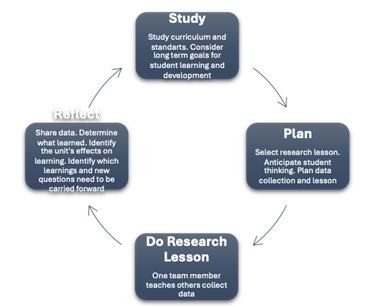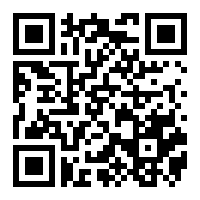Lesson Study’s Impact on Early Grade Teachers’ Growth and Pedagogical Knowledge Development
DOI:
https://doi.org/10.23917/ijolae.v7i3.8088Keywords:
collaborative learning, inquiry-based learning, lifelong learning, pedagogical knowledge development, pedagogy innovation, professional teacher development, teaching collaboration, teaching strategiesAbstract
Continuous professional development is vital for enhancing teachers' content knowledge and pedagogical expertise. Research has confirmed that lesson study significantly contributes to improving teachers’ professional development in many Asian countries. This study aimed to explore the impact of the Japanese lesson study model on the professional development of early-grade mathematics teachers. Previous research highlighted that many South African teachers lack adequate content knowledge and pedagogical content knowledge in mathematics instruction, leading to poor learner performance in the subject as revealed in national and international assessments. Using a qualitative case study approach, six early-grade teachers from a school in Gauteng Province were purposively selected as participants. Using Creswell’s six steps of data analysis, the author analysed the data thematically. The findings revealed that, despite their extensive teaching experience, participants lacked knowledge and understanding of mathematical content e and pedagogical content knowledge. However, engagement in collaborative lesson planning, self-reflection, and critical lesson reviews contributed to strengthening their professional development. Additionally, participants reported increased confidence and reduced anxiety when presenting the lessons. They acknowledged that the lesson study approach facilitated their professional growth and enhanced their content and pedagogical knowledge. The study concluded that lesson study is an effective professional development model. Participants emphasised the value of collaborative lesson planning and the formation of communities of practice in fostering learner-centred teaching approaches.
Downloads
References
Adhantoro, M. S., Sudarmillah, E., Gunawan, D., Nurgiyatna, Riyanti, R. F., Purnomo, E., & Asmaroini, A. P. (2025, March). Preparing students and teachers for a digital future: A review of the integration of computational thinking in STEM education. In AIP Conference Proceedings (Vol. 3142, No. 1, p. 020113). AIP Publishing LLC.
Almubarak, A., Saadi, P., Al Arief, Y., & Arini, D. N. (2025). Developing Interest-Based Teaching Materials in Chemistry Ed: Advancing Pedagogical Practices for Pre-service Teachers Engagement. Indonesian Journal on Learning and Advanced Education (IJOLAE), 252-271.
Andayanie, L. M., Adhantoro, M. S., Purnomo, E., & Kurniaji, G. T. (2025). Implementation of Deep Learning in Education: Towards Mindful, Meaningful, and Joyful Learning Experiences. Journal of Deep Learning, 47-56.
Astutik, I., Widiati, U., Ratri, D. P., Jonathans, P. M., Nurkamilah, N., Devanti, Y. M., & Harfal, Z. (2024). Transformative Practices: Integrating Automated Writing Evaluation in Higher Education Writing Classrooms-A Systematic Review. Indonesian Journal on Learning and Advanced Education (IJOLAE), 423-441.
Bayram, İ., & Bıkmaz, F. (2021). Implications of Lesson Study for Tertiary-Level EFL Teachers’ Professional Development: A Case Study From Turkey. Sage Open, 11(2). https://doi.org/10.1177/21582440211023771.
Business Tech. (2024). South Africa finishes stone last in Mathematics and Science. December 4 2024.
Cevikbas, M., Kaiser, G. Flipped classroom as a reform-oriented approach to teaching mathematics. (2020). ZDM Mathematics Education 52, 1291–1305. https://doi.org/10.1007/s11858-020-01191-5.
Cheng, L.P. & Yee, L.P. (2012). A Singapore Case of Lesson Study. The Mathematics Educator, 21(2), 34–57.
Creswell, J. W. (2018). Research design: A qualitative, Quantitative, and Mixed me-thod approach. United States of Ameri-ca: Sage Publications.
Department of Basic Education (DBE). 2011. Integrated strategic planning framework for teacher education and development in South Africa: 2011–2025. Government Printers.
Doig, B. & Groves, S. (2011). Japanese les-son study: teacher professional deve-lopment through communities of inquiry, Mathematics teacher education and deve-lopment, 13(1), 77–93.
Dudley, P. (2011). Lesson Study: A handbo-ok. University of Cambridge.
Harmadi, F., Maryani, I., Sukirman, S., & Montano, E. C. N. (2025). Digital Transformation: Exploring the Relationship Between Literacy, Motivation, and TPACK in Elementary Education. Indonesian Journal on Learning and Advanced Education (IJOLAE), 294-310.
Helmbold, E. (2021). The impact of lesson study on the professional development of early grade teachers. Unpublished PhD thesis. University of Pretoria.
Holden, M. (2022). Exploring online lesson study as a vehicle for teacher collaborati-ve professional learning. International Journal for Lesson and Learning Studi-es, 12(2), 179–193. https://doi.org/10.1108/IJLLS-01-2022-0012.
Le, T.T., Tran, P., T.T. & Tran, T.T. (2024). Exploring the impact of lesson study in Vietnamese Primary Education.: Perspec-tives of EFL lecturers. Journal of Innova-tion and Research in Primary Education, 3(1), 21–30. https://doi.org/10.56916/jirpe.v3i1.583.
Lee, L.H.J. & Tan, S,C, (2020). Teacher lear-ning in lesson study: affordance, distur-bances, contradictions and implications. Teaching and Teacher Education, 89. https://doi.org/10.1016/j.tate.2019.102986.
Lenski, S. J., & Caskey, M. M. (2009). Using the Lesson Study Approach to Plan for Student Learning. Middle School Journal, 40(3), 50–57.
Lewis, C., Perry, R., & Friedkin, S. (2009). Lesson study as action research. The SAGE handbook of educational action research, 142-154.
Luong, P. A. (2022). Applying the concepts of “community” and “social interaction” from Vygotsky’s sociocultural theory of cognitive development in math teaching to develop learner’s math communication competencies. Vietnam Journal of Educa-tion, 209–215.
Makinae, N. (2019). "The origin and deve-lopment of lesson study in Japan", in Hu-ang, R., Takahashi, A. and Ponte, J.P. (Eds), Theory and Practice of Lesson Study in Mathematics, Springer, Cham, pp. 169–181.
Maree, K. (2020). First Steps in Research. 3rd Edition. Van Schaik.
Mullis, I.V.S., Martin, M.O., Foy, P., Kelly, D.L. & Fishbein, B. (2020). Trends in In-ternational Mathematics and Science Stu-dy -2019 (TIMMS). TIMMS & PIRLS International Centre.
Newman, S., & Latifi, A. (2020). Vygotsky, education and teacher eduction. Journal of Education for Teaching, 47(1), 4-7. https://doi.org/10.1080/02607476.2020.1831375.
Ngwenya, T., & Chaba, P. (2024). Mathema-tics education in South African schools (grades 1–12): A systems dynamics ap-proach from an engineering education perspective. In Proc. Int. Conf. Ind. Eng. Oper. Manag. Publisher: IEOM Society International,
Ratih, K., Prayitno, H. J., Sutopo, A., Tamatea, L., & Syahriandi, M. (2019, August). Preparing for quality EFL teachers: the Disjuncture between policies and practice in the internet communication technology (ICT) use in classroom context. In PROFUNEDU 2019: Proceedings of the 4th Progressive and Fun Education International Conference, Profunedu 2019, 6-8 August 2019, Makassar, Indonesia (p. 93). European Alliance for Innovation.
Rusiana, R., Nuraeningsih, N., Sulistyowati, T., Syafei, M., Romadlon, F. N., Nurcahyo, A. D., ... & Milad, A. A. (2024). Book clubs as a pedagogical tool for developing critical thinking: Evidence from an English education program in Indonesia. Indonesian Journal on Learning and Advanced Education (IJOLAE), 350-364.
Shimizu, Y. (2020). Lesson study in mathe-matics education. In S. Lerman (Ed.), En-cyclopedia of mathematics education (2nd ed., pp.472–474). Springer. https://doi.org/10.1007/978-3-030-15789-0_91.
Shimizu, Y. & Kang, H. (2022). Discussing students’ thinking and perspectives for improving teaching: An analysis of tea-chers’ reflection in post-lesson discussi-ons in lesson study cycles. ZDM Mathe-matics Education 54, 419–431. https://doi.org/10.1007/s11858-022-01371-5.
Shing, C.L., Saat, R.M. & Loke, S.H. (2015). The Knowledge of Teaching – Pedagogi-cal Content Knowledge. The Malaysian Online Journal of Educational Science, 3(3), 40-55.
Shuilleabhain, A.N. (2015). Lesson study as a form of in-school professional deve-lopment: Case studies in two post-primary schools. University College.
Spaull, N. (2013). South Africa’s education crisis: The quality of education in South Africa, 199–2011. Pretoria: Centre for Development & Enterprise.
Spaull, N., & Kotze, J. (2015). Starting be-hind and staying behind in South Africa: The case of insurmountable learning defi-cits in Mathematics. International Jour-nal of Educational Developments, 41, 13–24.
Stigler, J. W., Gonzalez, P., Kawanaka, T., Knoll, S., & Serrano, A. (1999). The TIMSS Videotape Classroom Study: Me-thods and Findings from an Exploratory Research Project on Eight-Grade Ma-thematics Instruction in Germany, Japan and the United States. National Centre for Education Statistics. t http://nces.ed.gov/timss.
Takahashi, A.; McDougal, T. Collaborative lesson research: maximising the impact of lesson study. (2016). ZDM Mathematics Education, 48, 513–526, https://doi.org/10.1007/s11858-015-0752-x>. Acesso em: 05 set. 2020.
Venketsamy, R. & Hu, Z. (2022). Implemen-ting the Japanese Lesson Study as a pro-fessional development tool in South Afri-ca. Journal for the Education of the Gif-ted Young Scientist, 10(3), 349-362. http://dx.doi.org/10.17478/jegys.1129982.
Vygotsky, L.S. (1962). Thought and Lan-guage. MIT Press. (Original work publi-shed in 1934).
Warwick, P., Vrikki, M., Vermunt, J.D. et al. (2016). Connecting observations of stu-dent and teacher learning: an examination of dialogic processes in Lesson Study discussions in mathematics. ZDM Ma-thematics Education 48, 555–569. https://doi.org/10.1007/s11858-015-0750-z.
Widiastuti, A., Supriatna, N., Disman, D. & Nurbayani, S.K. (2023). Al-Ishlah Jurnal Pendidikan, 15(3), 4146-4174. https://doi: 10.35445/alishlah.v15i3.3429.
Widjaja, W., Vale, C., Groves, S. & Doig, B. (2017). Teachers’ professional growth through engagement with lesson study. Journal of Mathematics, 20(4), 357-383. doi: 10.1007/s10857-015-9341-8.
Xu, H. & Pedder, D. (2014). Lesson Study: an international review of the research. In the book Lesson Study: Professional Learning for Our Time. Routledge.

Submitted
Accepted
Published
Issue
Section
License
Copyright (c) 2025 Roy Venketsamy, Zijing Hu, Blanche Ntombizodwa Hadebe Ndlovu, Keshni Bipath

This work is licensed under a Creative Commons Attribution 4.0 International License.












